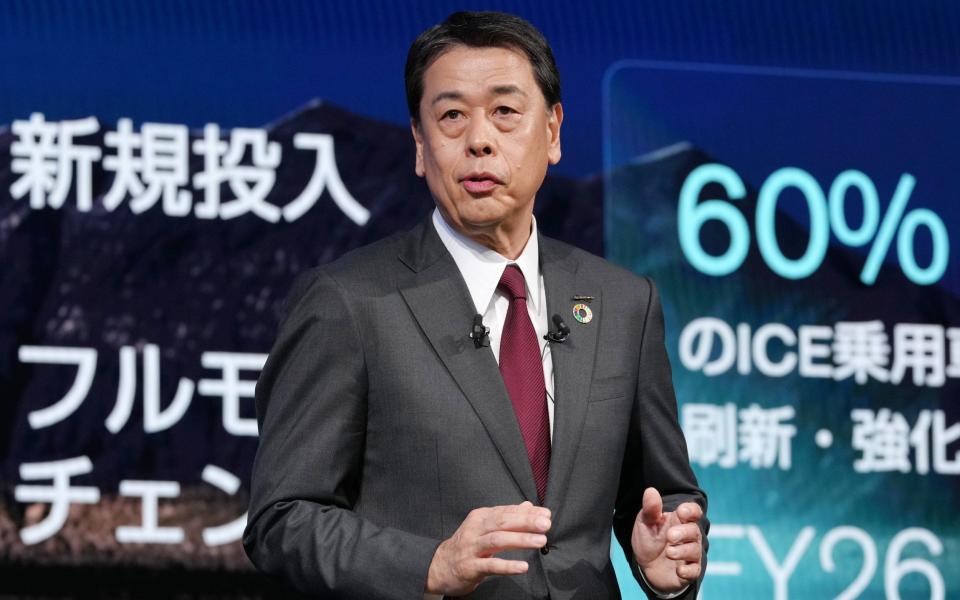Nissan vows to cut electric car costs by 30pc in fightback against China

Nissan has vowed to cut the cost of making electric vehicles (EVs) by a third as the Japanese car giant embarks on a fightback against China.
Under its “Arc” business plan, the Yokohama-based company said it would also launch 16 new EVs by 2026, as well as another 14 internal combustion engine cars.
Bosses said they would slash the cost of making battery-powered cars by 30pc using a “family” of designs and exploiting technology partnerships such as the deal Nissan has struck with former arch-rival Honda.
The lower production costs are expected to eventually allow the company to reduce prices for consumers – meaning it can compete more effectively with super-cheap EVs flowing out of China.
Nissan will begin producing cars under the family design approach from 2027 and aim to reach EV cost-parity with combustion engine cars by 2030, a statement said.
Nissan’s fightback plan also includes proposals to refresh three quarters of its car line-up in China itself, where it plans to launch eight “new energy vehicles” – a Chinese term that spans EVs, plug-in hybrids and fuel cell vehicles. Overall, Nissan is aiming to boost its sales globally by one million cars over the next two years.
Makoto Uchida, Nissan’s president and chief executive, said: “The Arc plan shows our path to the future. It illustrates our continuous progression and ability to navigate changing market conditions. This plan will enable us to go further and faster in driving value and competitiveness.
“Faced with extreme market volatility, Nissan is taking decisive actions guided by the new plan to ensure sustainable growth and profitability.”
The announcement comes just a week after Nissan unveiled an unexpected partnership with Honda to jointly develop EVs, a move that was widely seen as a response to the challenge Japan’s second and third-biggest car manufacturers are facing from their Chinese counterparts.
Following decades of research and investment, Chinese EVs are regarded globally as some of the most advanced with brands such as BYD, Chery, Geely and SAIC Motor enjoying a domestic sales boom, partly thanks to supportive policies from Beijing.
China also overtook Japan last year to become the world’s biggest exporter of cars, including petrol-fueled ones, as the likes of BYD look to dominate new markets across the globe.
Both Nissan and Honda are among the top 10 biggest car makers by sales but neither brand has many EV models on offer currently, with sales in their home Japanese market still relatively small.
In 2023, more than eight million new EVs or plug-in hybrids were sold in China, representing about 37pc of the market. By comparison, only 88,535 were sold in Japan during the same period – just 2.2pc of the total.

 Yahoo Finance
Yahoo Finance 